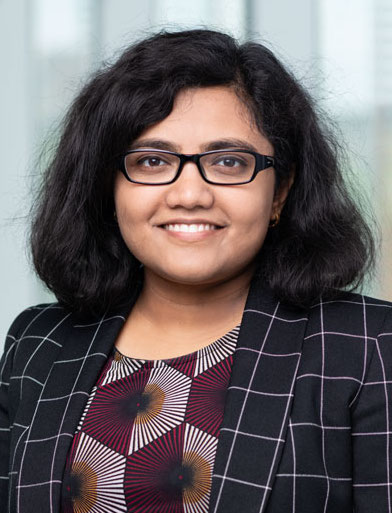CyLab Seminar: Sanghamitra Dutta
September 09, 2024
12:00 p.m. ET
Zoom or CIC room 4105, Panther Hollow
September 09, 2024
12:00 p.m. ET
Zoom or CIC room 4105, Panther Hollow

*Please note: this CyLab seminar is open only to partners and Carnegie Mellon University faculty, students, and staff.
Speaker:
Sanghamitra Dutta
Assistant Professor
Department of Electrical and Computer Engineering at University of Maryland – College Park
Talk Title:
Information-Theoretic Methods for Explainability in High-Stakes Applications
Abstract:
How do we ensure that the machine learning algorithms in high-stakes applications are explainable, fair, and lawful? Towards addressing this urgent question, this talk provides strategies for explainability that are deep-rooted in information theory and probability. In the first part of the talk, I will discuss an emerging problem in explainability, also called robust counterfactual explanations: how do we guide a rejected applicant to receive a favorable model outcome while also being robust to model multiplicity (Rashomon Effect)? We propose strategies to provide counterfactual explanations that remain robust under model changes with probabilistic guarantees. In the second part of the talk, I will introduce an information theoretic tool called Partial Information Decomposition and discuss its role in fairness and explainability problems.
Bio:
Sanghamitra Dutta is an assistant professor in the Department of Electrical and Computer Engineering at the University of Maryland College Park since Fall 2022. She is also affiliated with the Center for Machine Learning (CML) at UMIACS. Prior to joining UMD, she was a senior research associate at JPMorgan Chase AI Research New York in the Explainable AI Centre of Excellence (XAI CoE). She received her Ph.D. and Masters's from Carnegie Mellon University and B. Tech. from IIT Kharagpur, all in Electrical and Computer Engineering. Her research interests broadly revolve around reliable and trustworthy machine learning where she brings in novel foundational perspectives deep-rooted in information theory, statistics, causality, and optimization. In her prior work, she has also examined problems in reliable computing for large-scale distributed machine learning, using tools from coding theory (an emerging area called “coded computing”). She is a recipient of the 2024 NSF CAREER Award, 2023 JP Morgan Faculty Award, 2023 Northrop Grumman Seed Grant, 2022 Simons Institute Fellowship for Causality, 2021 AG Milnes Outstanding Thesis Award from CMU and 2019 K&L Gates Presidential Fellowship in Ethics and Computational Technologies. She has also pursued summer research internships at IBM Research and Dataminr.
February 16 2026
12:00 PM ET
CyLab Security and Privacy Institute
Zoom or Hamburg Hall, room A301
February 23 2026
12:00 PM ET
CyLab Security and Privacy Institute
Zoom or Hamburg Hall, room A301
March 9 2026
12:00 PM ET
CyLab Security and Privacy Institute
Zoom or Hamburg Hall, room A301
March 16 2026
12:00 PM ET
CyLab Security and Privacy Institute
Zoom or Hamburg Hall, room A301
March 23 2026
12:00 PM ET
CyLab Security and Privacy Institute
Zoom or Hamburg Hall, room A301
March 30 2026
12:00 PM ET
CyLab Security and Privacy Institute
Zoom or Hamburg Hall, room A301